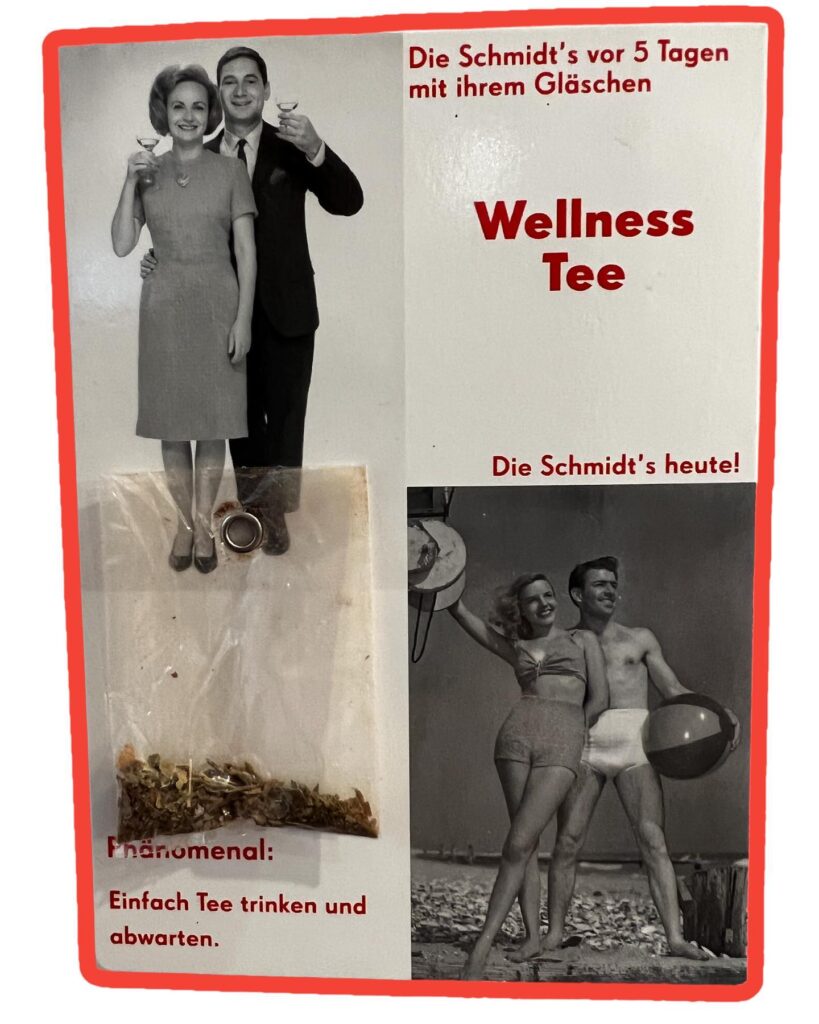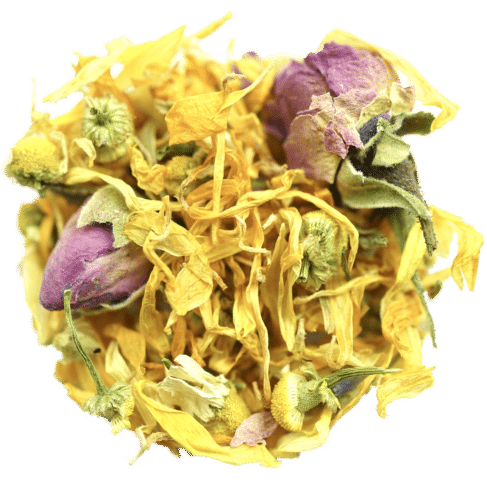Contrary to what you might think, herbal tea is not actually tea. Known in the UK as infusions, in France as tisanes and in the USA as simply herbals, “herbal tea” can be either single dried herbs (e.g. peppermint) or blends of various dried plants, seeds, flowers, leaves, roots, bark, stems and fruits, that are then infused in hot water to make a refreshing and healthy drink. The German based Tea & Herbal Infusions Europe (THIE) has listed up to 300 different plants and 400 parts of plants that are considered food and can therefore be used for making herbal and fruit infusions. Our thanks to THIE for making the list available of us all to view on their website.
We have finally stopped lecturing customers about why herbal tea is not tea, but as tea purists we have to tell you that there are only six true types of tea. These are categorised as white, green, yellow, oolong, black or dark (pu er) tea, and are made from the young leaves and buds of the tea plant, Camellia Sinensis.
Whatever we decide to call it, in herbal medicine, herbal tea is defined as any liquid preparation, usually without caffeine, that is made from extracting heath promoting, water-soluble, active substances from plants.

Just like tea from the tea plant, “herbal tea” has a long history. According to legend, it was a Chinese herbalist and emperor, Shennong who discovered tea from the tea plant in 2737 BC. As the story goes, he also tried brewing many different types of herbs as tea – which was fine until one of them killed him instead of curing him! Rest assured, drinking our selection of herbal infusions will not lead you to the same fate as Shennong!
The beneficial properties of herbal infusions were known to the ancient Greeks and Romans, and in medieval times, monks started making precise classifications of the herbs in the monastery gardens, categorising the plants according to their curative effect. At this time it was the monks who cared for the sick, using plants from the herb garden as medicine. Over time, extensive knowledge about the healing properties of herbs was gathered. Botanical and medicinal literature formed part of the monasteries´ libraries and the knowledge gained by the monks was passed down from generation to generation. A very well known practitioner of “monastic medicine” in Germany was Hildegard von Bingen, a nun, who eventually became an abbess and whose recipes are still popular today.
More than just a delicious alternative to water, some pure herbal infusions, such as chamomile, peppermint, and ginger, are well known for having health-promoting properties.
Most herbal teas are generally considered hydrating and can be counted as a cup of water when it comes to reaching your recommended daily intake.
Herbal teas contain nutrients, vitamins, minerals and antioxidants which vary depending on the type of herb or the blend.
Herbal teas (with the exception of mate) do not contain caffeine.

Single herbs used to make a herbal infusion, such as chamomile, taste and work just as nature intended. The effects of single herbs are well documented:
Herbal blends combine different plants and flowers to create a desired taste or have a desired effect. Created especially for us, completely natural and made to order in small batches, and with the exception of “Start the Week”, which contains mate, our herbal blends are caffeine free. Just like our range of black, green, oolong and white teas, our herbal teas taste great and contain no added sugar or other additives. Some of our most popular herbal blends are:
Yes! Although herbal teas do not generally contain caffeine, too much herbal tea could cause unpleasant side effects. Herbal tea, like most things in life, is best enjoyed in moderation, say 3 – 4 cups a day.
Having herbal tea before or after a meal could interfere with the absorption of food in the same way as having it with your food. Absorption of iron and protein-rich foods is greatly affected when tea is consumed along with food. Herbal tea should ideally be enjoyed an hour before or an hour after a meal.
Use at least 1 teaspoon of leaves per cup of water, or even more with blends or single herbs that are very big and “fluffy”. Put these in a sieve in your teapot or cup, cover with water that has boiled and once the tisane has steeped for the desired time, remove the sieve and enjoy your tea.
Herbal tea are also delicious served chilled. To make a herbal blend as an iced tea, you should put the tea in cold, filtered water and place it in the refrigerator. Allow the tea to steep for an hour or longer, the longer you leave it, the stronger the flavour will be. The result will be a naturally tasting, refreshing iced tea! Alternatively you can make a hot tea, pour it over ice-cubes and cool.
If a herbal blend contains a mixture of all of the above we recommend taking the lower infusion time, so for a blend with flowers and leaves, choose 3 rather than 5 minutes.
* Prices inclusive of VAT. Prices do not include shipping costs
EU Organic Certification through ABCert (DE-ÖKO-006)
| Cookie | Duration | Description |
|---|---|---|
| __stripe_mid | 1 year | This cookie is used by our payment provider Stripe to process payments. |
| __stripe_sid | 30 minutes | This cookie is used by our payment provider Stripe to process payments. |
| cookielawinfo-checkbox-analytics | 1 year | The cookies is used to store the user consent for the cookies in the category “Analytics”. |
| cookielawinfo-checkbox-necessary | 1 year | The cookies is used to store the user consent for the cookies in the category “Necessary“. |
| CookieLawInfoConsent | 1 year | This cookie is used to record the default button state of the corresponding category. |
| viewed_cookie_policy | 1 year | The cookie is used to store whether or not user has consented to the use of cookies. |
| woocommerce_cart_hash | session | This cookies is used to determine when cart contents/data changes. |
| woocommerce_items_in_cart | session | This cookie is used to determine when cart contents/data changes. |
| wp_woocommerce_session_* | 2 days | This cookie is used to find the cart data in the database for each customer. |
| Cookie | Duration | Description |
|---|---|---|
| _ga | 2 years | This cookie is used by Google Analytics to calculate visitor, session and campaign data for the sites analytics reports. |
| _ga_* | 2 years | This cookie is used by Google Analytics to calculate visitor, session and campaign data for the sites analytics reports. |
Call us during opening hours on + 49 (0) 711 518 74 006 or email us using the form below. We will get back to you as soon as we can.